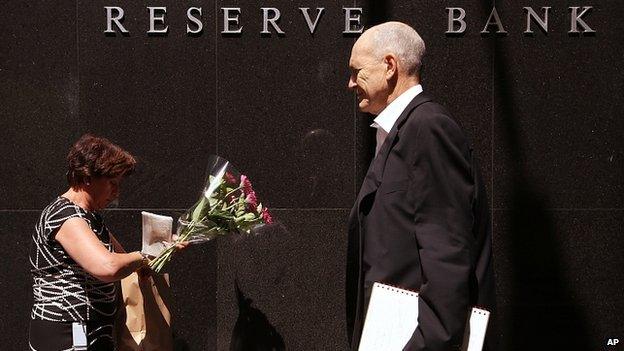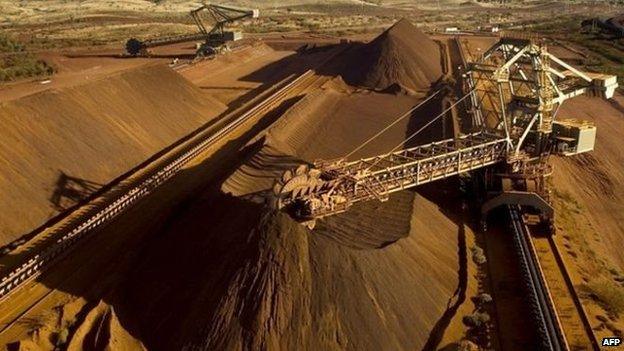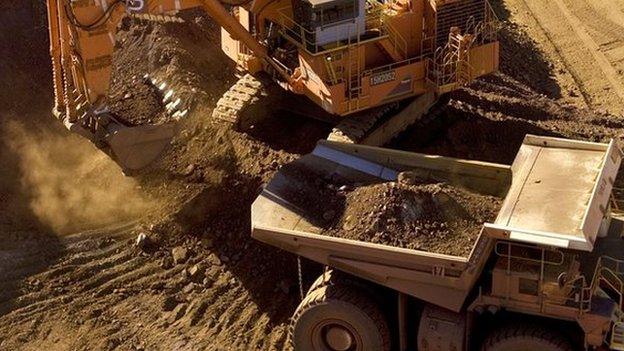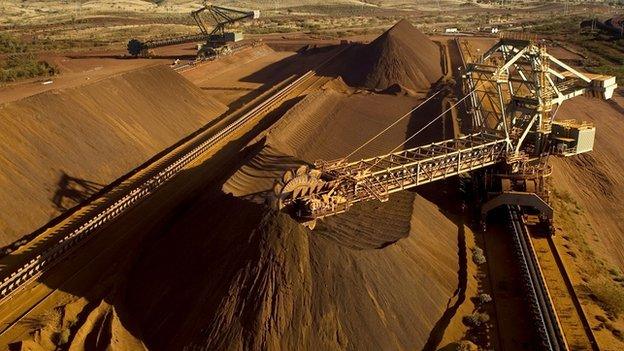Australia may need to cut interest rates, IMF warns
- Published

The Reserve Bank of Australia has been juggling contradictory economic trends in mining states
The International Monetary Fund (IMF) has warned that Australia may have to cut interest rates again if inflation continues to fall.
The warning came in the IMF's latest World Economic Outlook (WEO), released on Tuesday in Washington.
It said the downturn in the global commodity cycle was "continuing to hit Australia's economy".
The IMF report comes just a few weeks before the government releases its annual budget.
The report said that in countries such as Australia, Japan and Korea where inflation was low, "policymakers may need to act to prevent a persistent decline in inflation expectations".
It warned also of the damage from the large commodity price decline in 2015 for iron ore, which is Australia's largest export.
Australian Treasurer Joe Hockey said this week that the recent plunge in the iron ore price would reduce revenue forecasts by A$25bn (£13bn; $19bn) over the next four years.
Iron ore is currently trading at about US$50 a tonne - down from US$120 a tonne in 2013.


Analysis: Julian Lorkin, Sydney
With coal mining communities already struggling, iron ore towns are now feeling the first wave of shocks that will ripple through Australia's economy.
One such town, Port Hedland in Western Australia's remote Pilbara district, has seen hardship before but this time round it will be tough, according to Port Hedland Chamber of Commerce managing secretary Arnold Carter.
"Everyone is worried," the 87-year-old former deputy mayor told the BBC.
"Fear of the unknown is the biggest handicap. Miners won't spend when they can't see past the end of next week."

Australia's central bank, the Reserve Bank of Australia, cut the cash rate by 0.25% in February but kept it steady in March and April. The cash rate - the rate of interest which the central bank charges on overnight loans to commercial banks - influences all commercial interest rates.
The bank has been juggling the contradictory economic trends of weakening growth in mining states such as Western Australia and Queensland and overheated housing markets in other parts of the country.
The IMF said the downturn in the global commodity cycle was "exacerbating the long-anticipated decline in resource-related investment" in Australia.
"However, supportive monetary policy and a somewhat weaker exchange rate will underpin non-resource activity, with growth gradually rising in 2015-16 to about 3% (broadly as projected in the October 2014 WEO)," it said.
Slowing demand from China for iron ore and coal - another major Australian export - has helped drive down prices.
- Published13 April 2015

- Published14 April 2015
